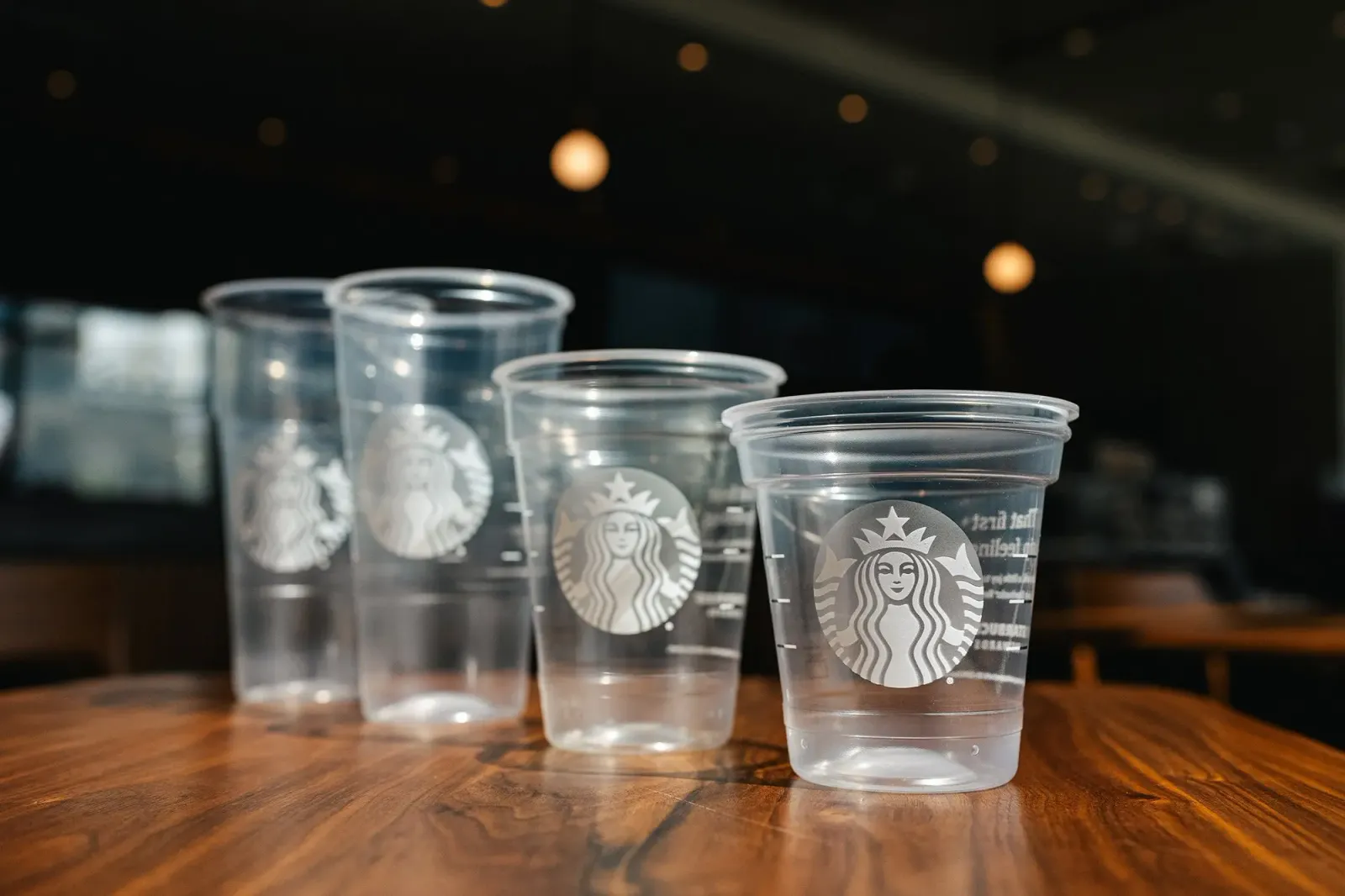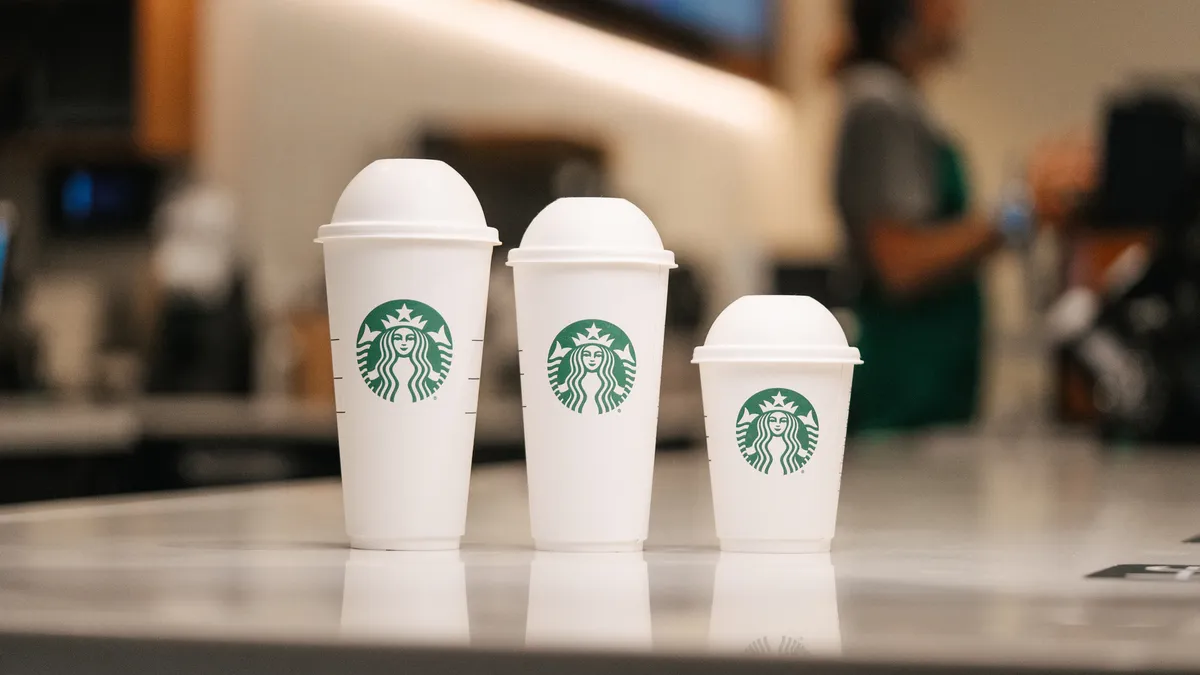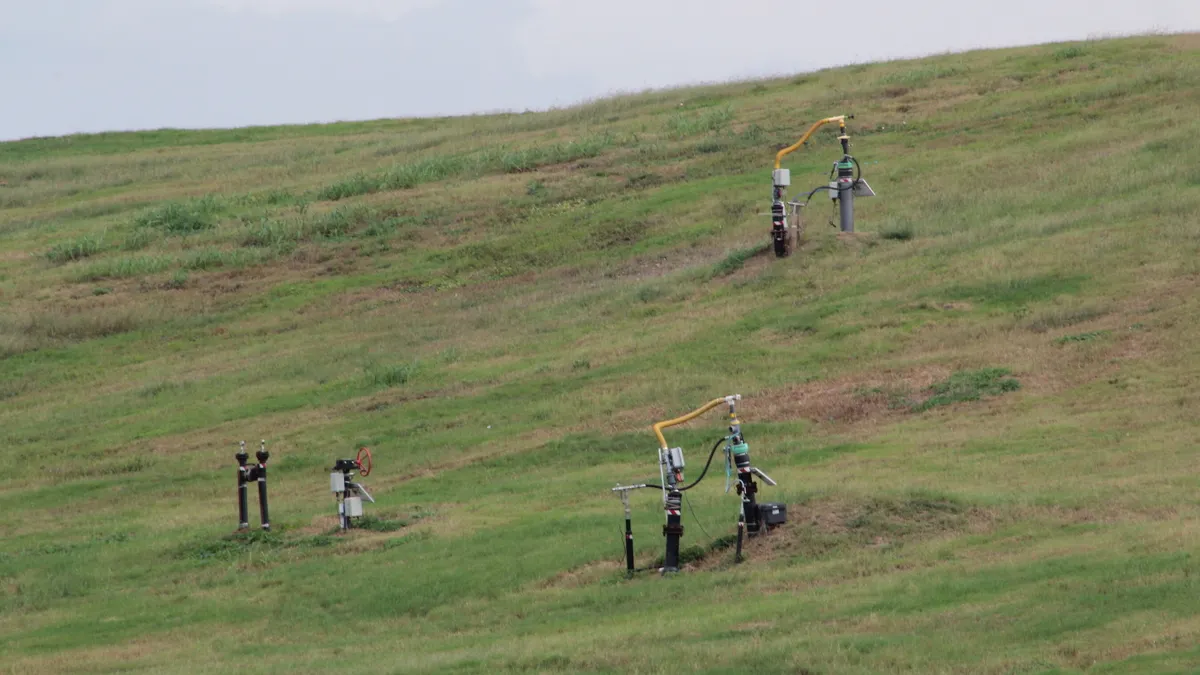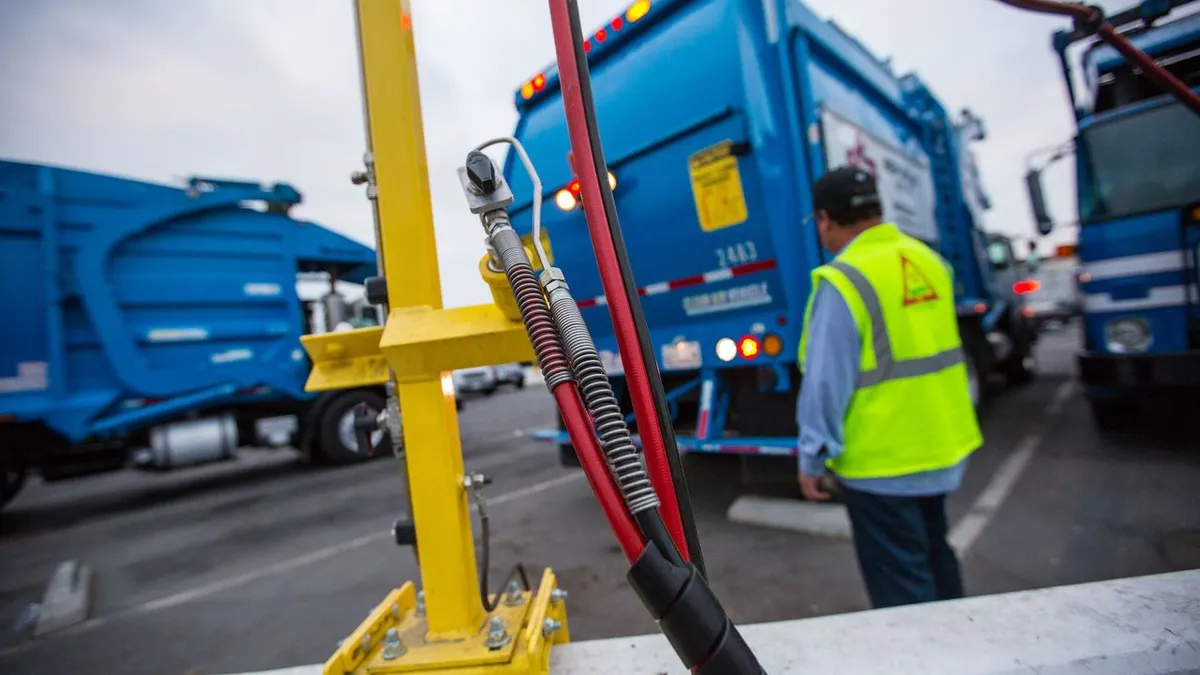Finland-based packaging company Huhtamaki is helping Starbucks launch new fiber-based, compostable cups for cold beverages in select locations by providing molded fiber lids.
The compostable cups and lids initially will roll out in 24 stores, based on local mandates, and more markets are likely to be added in the future, a Starbucks spokesperson said via email. Starbucks confirmed that Huhtamaki is a partner on this project. Huhtamaki, which has more than a dozen U.S. locations, declined to comment on specific customer partnerships.
Both the fiber-based lids and cups will be opaque, said the Starbucks spokesperson. The cup, manufactured from double-walled paperboard with a bioplastic liner, is provided by Seda International Packaging Group, the spokesperson confirmed. The Italy-based company has worked with Starbucks in the past to produce cups made from postconsumer recycled content.
Ann O’Hara, Huhtamaki’s president of North America, announced the company’s partnership on the molded fiber lids on LinkedIn last week, citing increased demand for the material. Creating this product “is not as easy as it looks,” the post said, describing how lids need to have a snug fit on cups. Huhtamaki reports using some postconsumer recycled fiber, including from old newspapers, in its new molded fiber products, such as egg cartons, fruit packaging and food service cup carriers.
O’Hara’s post said the first stores in the compostable packaging pilot will be in California and Minnesota. Both of those states are in the process of implementing extended producer responsibility for packaging laws, as are Colorado, Maine and Oregon. USA Today first reported initial details of the pilot, including that 21 participating locations are in California and three are in Minnesota.

The pilot comes on the heels of Starbucks’ April launch of single-use cold cups that are made with 10% to 20% less plastic, depending on size, compared with its previous versions. The coffee giant continues to roll out those cups in stores across the U.S. and Canada, according to the spokesperson.
In a different cups initiative, last month Starbucks joined more than 30 other food service providers — including KFC, Taco Bell, Dunkin’ and Peet’s Coffee — in announcing a large-scale reusable cups program in Petaluma, California, that’s set to begin today. Last year, Starbucks launched its own reusable cups pilot in Petaluma in partnership with Turn Systems.
Starbucks’ recent work on its cups and lids aligns with the three new 2030 targets the company unveiled in its latest sustainability report that are related to consumer-facing packaging: Make it 100% reusable, recyclable or compostable; ensure it’s sourced from 50% recycled materials; and make it using 50% less virgin fossil fuel-derived sources. These are an addition to existing 2030 goals, which include targeting a 50% reduction in waste from stores and direct operations that is sent to landfills.
The FY23 sustainability report shows that 2% of the company’s beverages sold that year were in reusable cups, up from about 1.2% the previous fiscal year. The company’s previous sustainability report, for FY22, mentioned that it permanently retired a goal to achieve 100% compostable and recyclable hot cups by 2022 and instead launched a “more sustainable” hot cup made with less paper and less plastic liner. At that time, Starbucks also reported missing its goal to double the use of reusable cups by 2022 from a 2016 baseline, which was about 1.4%.
Huhtamaki considers molded fiber a growth area. In 2023 it ramped up production of the material at multiple global facilities, according to its 2023 annual report.
Martin Keyes is said to have invented molded fiber and patented the first molded pulp machine in 1903. He founded Maine-based Keyes Fibre Co., which Huhtamaki acquired about 30 years ago, and the company’s original location in Waterville, Maine, still operates.
Editor’s note: This story has been updated to note Seda’s role in providing cups for Starbucks’ new compostable packaging pilot.
Interested in more packaging news? Sign up for Packaging Dive’s newsletter today.




















